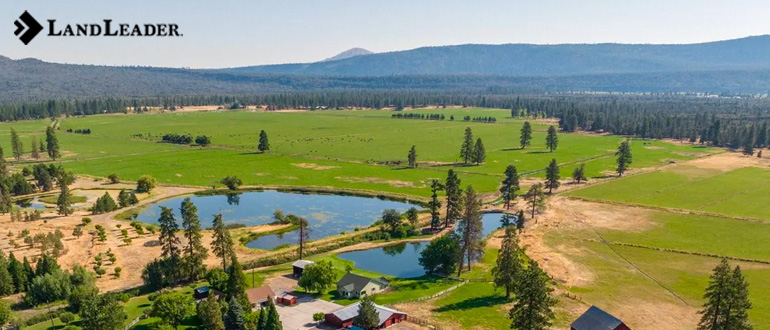Welcome to a land of possibilities, where fertile fields and rolling landscapes await your farming dreams! In this comprehensive guide by LandLeader, we delve into the world of land for sale for farming, unlocking a treasure trove of insights for aspiring agriculturists and seasoned farmers alike. Whether you’re a visionary looking to cultivate organic crops, raise livestock amidst nature’s embrace, or invest in the earth’s bounties, this guide is your compass.
Join us on this enlightening journey as we equip you with the knowledge to sow the seeds of success on your very own slice of paradise. The bountiful harvest of information awaits – let’s cultivate your farming aspirations, one acre at a time.
Land for Sale for Farming: Understanding the Requirements for Farming Land
Buying land for farming is an important decision that requires careful consideration of various factors. Here are some key requirements to understand when looking for farming land:
Soil Quality and Composition
The foundation of successful farming lies in the soil. Soil quality and composition profoundly impact crop growth and yield. Before diving into land for sale, familiarize yourself with the soil types suitable for your desired crops. Sandy soils are ideal for some crops, while others thrive in loamy or clay soils. Consider conducting soil tests to assess fertility, drainage, and pH levels.

Climate Considerations
Different crops flourish in different climates. Research the climate of the region where the land is situated. Does it receive adequate sunlight and rainfall? Is the temperature range suitable for your chosen crops? A favorable climate can mean the difference between a bumper harvest and disappointment.
Water Availability and Irrigation Options
Water is the lifeblood of agriculture. Ensure the land has access to a reliable water source, whether it’s a river, well, or irrigation system. Water availability can determine the types of crops you can grow and their yield potential. Adequate irrigation systems are essential for dry periods to maintain consistent growth.
Access to Markets and Transportation
Proximity to markets is a key consideration for any farm. Easy access to markets reduces transportation costs and ensures that your produce reaches consumers while it’s still fresh. Well-maintained roads and transportation networks are crucial factors to assess when evaluating land for farming.
Exploring LandLeader as a Trusted Source for Finding Farming Land
When finding the perfect parcel of land for farming, LandLeader is your go-to source. With a wide range of listings tailored for agricultural use, LandLeader connects you with top-tier real estate professionals who understand the nuances of farming land transactions. Their expertise ensures you get accurate information and guidance throughout your journey.
Key Factors to Consider When Evaluating Land for Farming
Evaluating land for farming requires careful consideration of several key factors to ensure its suitability for your intended agricultural activities. Here are the important factors to take into account:
Review Online Records
Before embarking on on-site visits, delve into online records. This includes property history, soil data, water rights, and potential legal restrictions. Gathering this information beforehand can save time and prevent potential disappointments.
Contact Local Experts
Local agricultural extension offices, farmers, and agronomists can provide valuable insights into the specific challenges and opportunities of the region. Their knowledge can help you understand the intricacies of local soil, climate, and farming practices.
Restrictions/Restricted Areas
Be aware of any zoning regulations, land use restrictions, or protected areas on the property. Certain areas may be off-limits for farming due to conservation efforts or environmental concerns.
Land Orientation
The orientation of the land in relation to the sun can affect sunlight exposure, which is crucial for plant growth. South-facing slopes receive more sunlight, while north-facing slopes may be shadier and cooler.
Conducting Due Diligence on Potential Farming Land
As exciting as the prospect of owning farming land is, due diligence is paramount. Visit the property multiple times, observing the land at different times of the day. Look for signs of soil erosion, pest infestations, or other issues impacting your farming endeavors.
Making an Informed Decision and Purchasing Farming Land
Making an informed decision when purchasing farming land is crucial for long-term success. Begin by assessing your needs and goals for the land—consider factors like crop type, soil quality, and water availability. Research the local climate and market demand for your chosen crops. Conduct a thorough land inspection, checking for drainage issues, topography, and potential contaminants. Verify legal aspects, including zoning regulations and property boundaries.
Consult with real estate agents, agronomists, and legal advisors to ensure you’re well-informed. Calculate the total costs, including the purchase price, taxes, and potential development expenses. Prioritize clear land titles and seek history of previous land usage. Lastly, envision your farm’s future potential and alignment with your goals before finalizing your decision.
FAQs (Frequently Asked Questions)
What are the key factors to consider when evaluating farmland investments?
When evaluating farmland investments, key factors include soil quality, climate suitability, water availability, market access, and legal land-use restrictions.
How does location impact farmland investments?
Location impacts farmland investments by influencing climate, market access, and potential growth. A well-located farm can yield better returns due to favorable conditions and easier product distribution.
Why is soil quality important in farmland investments?
Soil quality directly affects crop health and yield. High-quality soil with good fertility and drainage enhances the potential for successful and sustainable farming.
What role does crop potential play in farmland investments?
Crop potential determines the types of crops you can grow and their yield. Investing in land suitable for high-value or in-demand crops can yield more profitable returns.
How can diversification benefit farmland investments?
Diversifying your crops can mitigate risks associated with market fluctuations or crop failures. It ensures a stable income stream by spreading out your agricultural activities.
Owning and cultivating farming land is a rewarding endeavor that requires careful consideration and research. With LandLeader’s expertise and this comprehensive guide, you’re well-equipped to find the ideal farmland that aligns with your agricultural aspirations. Happy farming!


